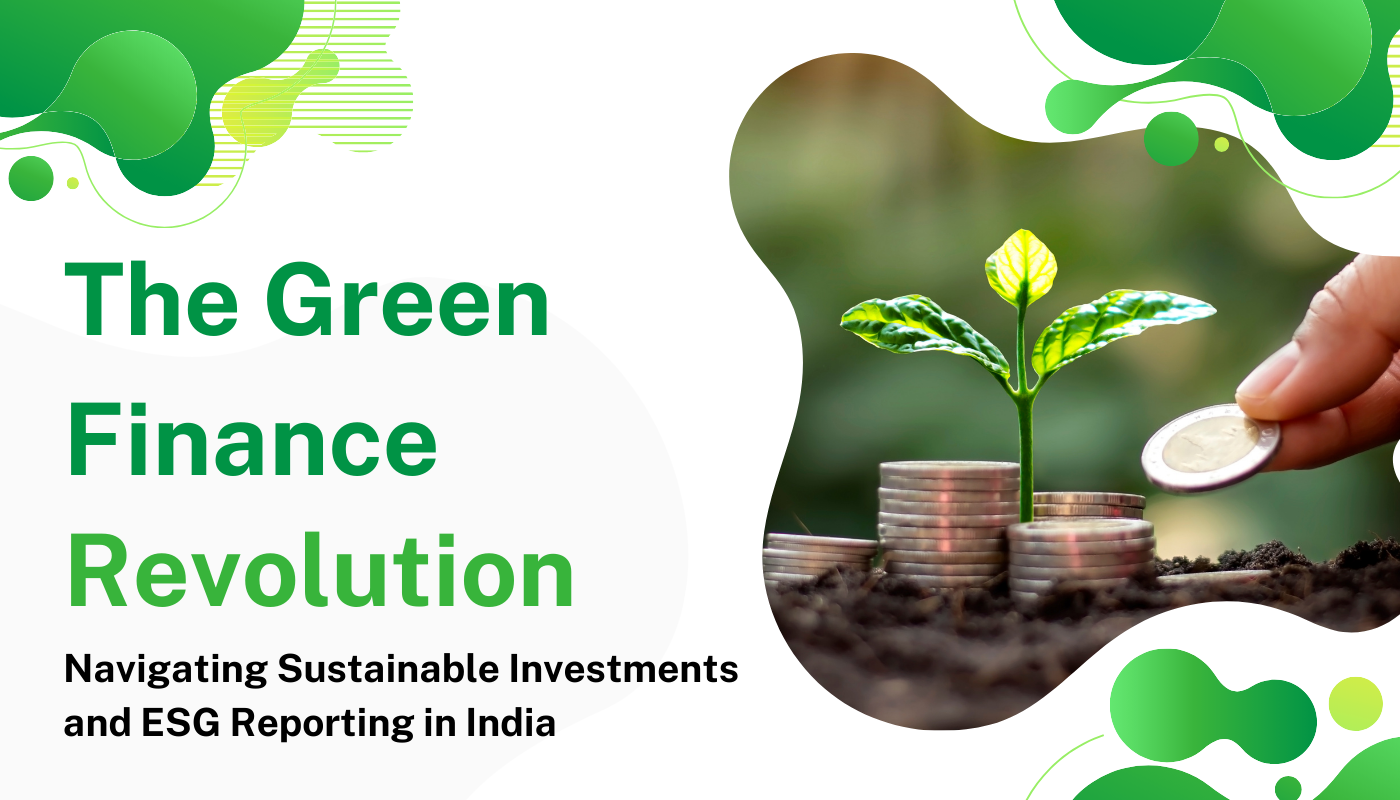


India is at the forefront of the green finance revolution, with the government's push for sustainable development and the increasing need among businesses and investors to prioritize environmental, social, and governance (ESG) factors. The Reserve Bank of India has introduced guidelines for banks and non-bank financial companies (NBFCs) to accept "green deposits," ensuring that funds are utilized for initiatives such as energy efficiency, clean transportation, climate change adaptation, sustainable water and waste management, green buildings, and biodiversity conservation [^1^]. This focus on green finance is expected to create innovative financing solutions and investment opportunities in the green sector [^1^].
The Rise of Sustainable Investing in India
In March, the Securities and Exchange Board of India (SEBI) introduced an ESG category of mutual funds, allowing asset management companies to launch multiple ESG funds. This move aims to enhance reporting on ESG parameters, leading to increased rigor and transparency in the market, ultimately boosting investor confidence [^1^]. As the demand for sustainable investing grows, it is crucial for both the government and private sector organizations to adopt measures that promote green technologies and solutions, including internal carbon pricing and investment in low carbon technologies [^1^].
Standardization and Transparency in Green Finance
One of the challenges facing ESG investors in India is the lack of standardized definitions and measurement frameworks. With an abundance of tools and frameworks in the market, it can be challenging for investors to understand which metrics are meaningful and which ones may reward fundamentally unsustainable companies [^3^]. Different rating providers often assign different scores to the same company, leading to confusion among investors. For example, Research Affiliates found that two rating providers evaluated Wells Fargo's ESG performance differently, with significant discrepancies in their assessments [^3^]. To address this issue, there is a need for greater transparency, standardization, and education around relevant metrics and their impact on financial performance [^1^].
The Role of Data in Sustainable Investing
Data plays a crucial role in sustainable investing, enabling investors to assess the ESG credentials of companies and make informed investment decisions. However, capturing the right data and ensuring its accuracy can be a timeconsuming process. While there is an oversupply of tools and frameworks to measure ESG performance, investors must carefully evaluate the quality and relevance of the data provided [^3^]. Embracing high-volume data processing, machine learning, and artificial intelligence can help financial institutions analyze and extract valuable insights from ESG data [^1^]. Cloud technologies may also be considered to efficiently manage and store large datasets, enabling a more sustainable and efficient approach to data analysis [^2^].
Driving Sustainable Investments through Regulation
Regulation plays a vital role in shaping the future of sustainable finance. In India, the government is anticipated to take action on green financing by introducing measures such as tax breaks for low-carbon technologies and promoting the use of green financing instruments [^1^]. Furthermore, the emergence of global sustainability disclosure standards, like the Sustainable Financial Disclosure Regulation (SFDR), emphasizes the need for companies to provide greater transparency on their sustainability-related information [^2^]. Regulatory frameworks not only ensure accountability but also encourage companies to integrate ESG factors into their business strategies, contributing to the overall growth of sustainable investments.
The Importance of Impact Investments
Impact investments, which aim to generate measurable social and environmental impact alongside financial returns, are gaining traction in India. However, capturing the right data to assess the impact of such investments can be challenging. It requires a hands-on approach, as impact measurement goes beyond traditional financial metrics [^3^]. Investors need to consider the specific social and environmental outcomes they seek to achieve and align their investments accordingly. Collaborations between government, academia, and industry are crucial for developing standardized impact measurement frameworks and ensuring transparency in reporting [^1^].
The Road to a Net Zero Economy
Transitioning to a net zero economy is a global imperative, and India has set the ambitious goal of achieving this by 2070 [^1^]. To achieve this target, it is essential to promote sustainable and responsible investment practices. Encouraging companies to prioritize ESG factors and supporting innovation in green technologies will be critical [^1^]. Public-private partnerships, advocacy for new policies, and collaborations between various stakeholders are necessary to drive the effective implementation of green financing mechanisms [^1^]. The use of technology, such as tracking emissions and implementing tighter reporting requirements, will improve transparency and strengthen investor confidence, reducing the risk of greenwashing [^1^].
Conclusion
The green finance revolution in India offers significant opportunities for sustainable investments. However, the lack of standardized definitions, measurement frameworks, and transparent reporting poses challenges for investors. To navigate these challenges, there is a need for greater transparency, standardization, and education around ESG metrics. Embracing data analytics, machine learning, and cloud technologies can enable more effective analysis of ESG data. Regulatory frameworks and global sustainability standards play a crucial role in driving sustainable investments. By prioritizing impact investments and collaborating with various stakeholders, India can accelerate its transition to a net zero economy and create a more sustainable future.